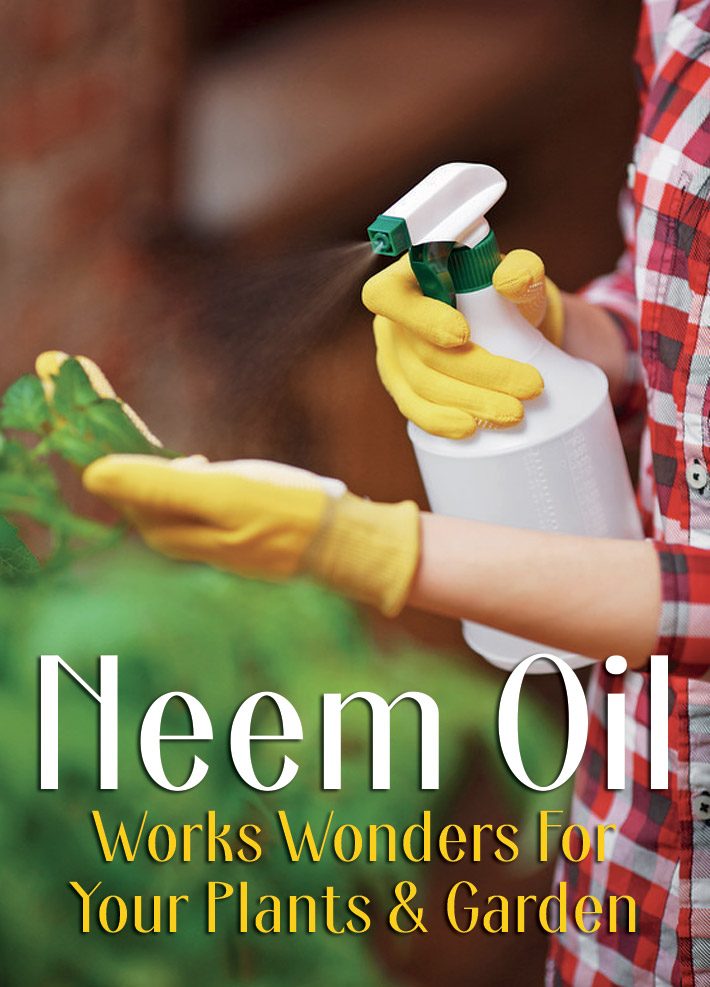
Neem oil is a natural pesticide extracted from the seeds of Neem (Azadirachta indica), a tropical tree native to the Indian subcontinent. All parts of the tree have an antimicrobial and insecticidal property that has been exploited for thousands of years by indigenous people. Its excellent safety profile for higher organisms, especially birds and mammals, makes it a better alternative to chemical pesticides.
Neem oil is not a contact poison. It does not kill insect pests directly. It is systemic in action, mainly affecting the feeding as well as growth and development of insects. Nothing will happen immediately even if you spray the oil on them, so people often come to the conclusion that neem oil is ineffective and just all hype.
Neem oil has to be first ingested by the pests before it can have any effect. Because of this, the toxic effect of the oil is mainly directed towards insects that suck plant juices and the insect larvae munching on the leaves and buds. Many predatory insects and other pollinators that do not eat plant parts are spared.
The most important bioactive agent in neem oil has been named azadirachtin. This compound belongs to a group of phytochemicals known as limonoids. Azadirachtin seems to have a steroid-like action on insect metabolism, disrupting hormone synthesis and other cellular functions. Loss of appetite is one obvious outcome, and it causes reduced feeding in insects. Larval metamorphosis and adult molting are also affected. All in all, the insects fail to thrive and attain sexual maturity, so their populations decline.
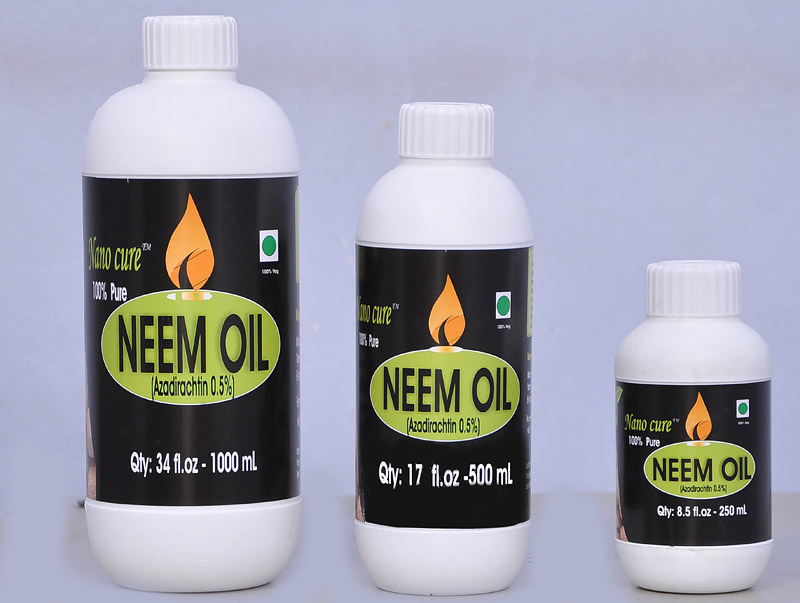
Neem phytochemicals are known to have several recognized modes of action.
- Controls feeding – Caterpillars feeding on leaves sprayed with neem oil develops an aversion to eating. It is thought that they experience a nausea-like sensation. Apart from Azadirachtin, two other substances, namely Melatrol and Salannin, are identified as causing this effect.
- Growth retardation – Insects grow and develop through a series of metamorphic stages. This process is regulated by specific enzymes, but neem compounds suppress their production, effectively preventing chrysalis formation and molting. This practically arrests the development of larvae into pupae and nymphs into adults.
- Larval malformation – Larvae exposed to neem compounds may sometimes develop abnormally, growing into malformed adults that are incapable of attaining sexual maturity.
- Sterilization of adults – Adult insects may become sterile as a result of ingesting neem oil. This action helps with insect population control.
- Mating disruption – The action of neem compounds on the hormonal pathways associated with mating creates confusion in the insects, disrupting their normal sexual behavior.
- Deters oviposition – Gravid females exposed to neem oil often show oviposition deterrence, and refrain from laying eggs.
- Egg poisoning – Although neem oil doesn’t have contact toxicity, insect eggs coming in contact with it often fail to hatch, or hatch into deformed larvae.
Azadirachtin is generally safe to mammals, but it is known to cause mild skin and respiratory irritation on contact and inhalation by people and animals. Hence, sufficient precautions should be taken while handling and spraying neem oil formulations.

Neem oil is used in many commercially available insecticide formulations, but you can mix your own potent formula from pure neem oil. There are mainly three ways neem oil can be used for effective pest control in the organic garden.
3 Ways To Use Neem Oil As An Insecticide & For Pest Control
1. Neem oil as foliar spray
Neem oil can be mixed with water and used in spray pumps to coat the aerial parts of the plants that come under attack from pests. As you know, oil and water don’t mix, the oil remaining as a separate layer on the water surface. A surfactant is required to counteract this. Liquid detergents, especially dishwashing liquids, are the ideal surfactants for the home gardener.
To make a foliar spray you need:
- 1-quart warm water
- 2 tsp neem oil
- 1 tsp dishwashing liquid
Mix them all together and pour into a spray can. Spray the foliage and the stem, making sure that the mixture gets to the underside of leaves where insects usually hide. This formula can be safely used on all kinds of vegetables, herbs and fruits. However, it can burn the tender parts of the plant, especially if the plant is under water stress. Minimize this risk by watering the plants a few hours prior to spraying.
Azadirachtin breaks down pretty quickly once the oil is diluted, so use up the spray within 2-3 hours of mixing. Depending on the insect pests affecting your crops, the application should be repeated several times over a period that matches the length of their full life cycle. In the case of rapidly-reproducing insects with short lifecycles such as spider mites, the plants should be sprayed every three days for at least 2-3 weeks.
2. Neem oil in horticultural oil
Petroleum-based and vegetable oil-based horticultural oils are often used as a protective spray on crops, especially fruit trees. Dormant oil used in late fall and winter is a typical example. These oils do not usually contain any toxic component; their function is to smother overwintering insect and their larvae, thus reducing their population the following season.
Horticultural oil is well accepted in organic culture, but they have a limited effect since they do not have any residual action. Adding neem oil to the formula can make them more effective by reducing the chances of insects and their larvae attaining sexual maturity and reproducing. Insect eggs that have been sprayed with neem oil often fail to develop.
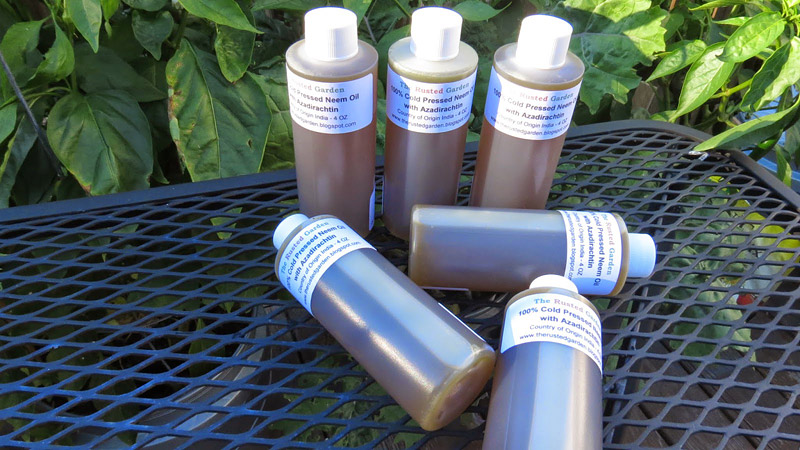
You can add neem oil to any commercial horticultural oils such as All Seasons Oil at the ratio of 1 Tbsp to a quart. Mix well and spray on trees, with special attention to forks, knots and dead branches.
3. Neem oil as soil drench
Using neem oil as a soil drench is the most effective and healthiest way of organic pest control. The oil is absorbed through the roots and spreads to every part of the crops, so no insect pest ingesting any part of the plants is spared. Avoiding aerial spray means the oil has no chance of causing any respiratory irritation to people and pets.
Another advantage of using it as soil drench is that it can take care of pathogenic soil organisms, especially nematode worms. As a matter of fact, neem has a long history of being used as vermifuge in its native areas. Soil drench is especially beneficial for tomatoes and melons that are highly susceptible to nematode infestation.
Please follow us on Pinterest and enjoy our collection of recipes, crafts, fitness, health tips, gardening, DIY and more…
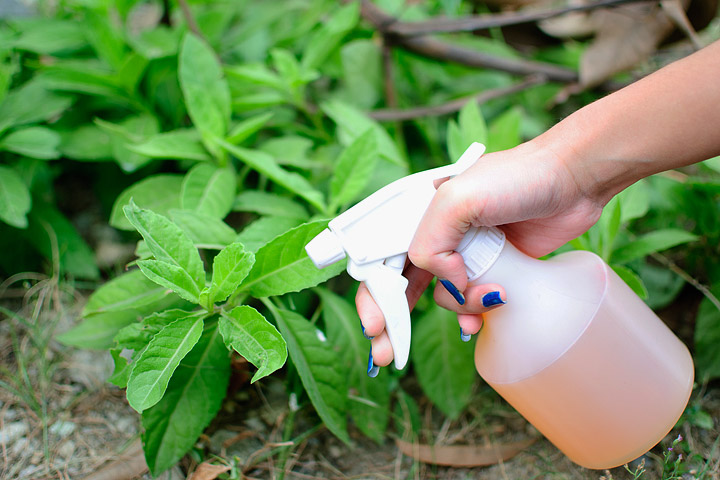



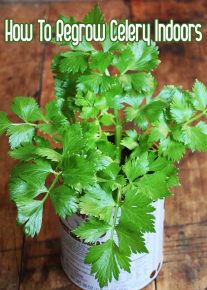
Leave a Reply